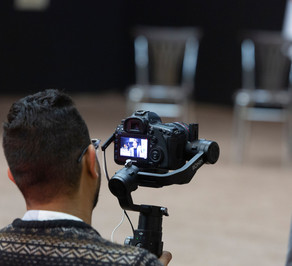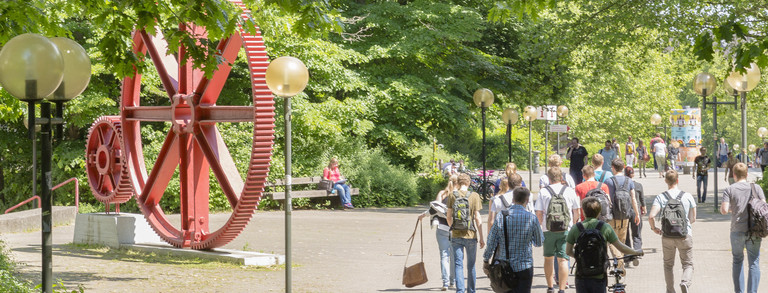Call for papers for the edited book: “Higher Education Partnership in Times of Crisis. Reflections on Rethink Education and Science in Iraq”.
The Rethink Education and Science in Iraq Network invites you to submit papers, personal reflections and artistic contributions for the edited book on “Higher Education Partnership in Times of Crisis: Reflections on Rethinking Education and Science in Iraq”.
1. Introduction
The Rethink Education and Science in Iraq (RESI) network will celebrate its 10th anniversary in 2026. Now is the time to look back and reflect on the experiences of this unique university partnership. RESI began during the occupation of Iraq by the so-called 'Islamic State', with the important goal of strengthening the social role of universities and educational institutions in providing spaces for science, discourse and reconciliation, even in times of oppression, displacement and war. In the years that followed, RESI also aimed to provide a scientific foundation for these discourses.
To this end, RESI considered it important to promote not only cooperation and exchange between universities and scientists from different countries and disciplines, but also to bring together people from different generations and contexts to develop a shared vision of partnership-based cooperation in the 21st century that is committed to scientific principles and humanistic values. The core themes of the partnership were consequently Academic Reconstruction and International Exchange, Strengthening Academia and Education, Promoting Dialogue and Reconciliation, Empowering Students, Quality development and international connectivity to scientific communities and Engaging with Questions of Justice and Sustainable Development.
Over the years, more than 500 people from the fields of science, civil society, politics, industry, art and culture, hailing from over 10 countries, have come together to build a robust international academic network. Guided by the principles of solidarity and partnership, they have created inspiring and unique educational environments in Iraq, Germany and Austria. In total, over 5,000 people took part in academic, artistic and social activities, the most prominent of which were the annual student conferences attended by over 3,000 students in Iraq.
The book project aims to document the perspectives, experiences, projects, outcomes and impact of RESI activities. Collecting both individual memories as well as scientific papers in order to facilitate a joint reflection on the potential of university cooperation in times of war and crisis. The project also aims to encourage people elsewhere to collaborate in the fields of education and science, and to promote international cooperation and transformative education.
2. Types of contributions (Scientific papers, personal reflections and artistic contributions)
We would like to invite everyone who has been involved in or is a strong supporter of the RESI project (especially students, teachers and administrators) to contribute.
In order to document the achievements and experiences of the RESI project, we are planning to publish a book containing research papers, personal reflections and artistic contributions. All publications in this volume should relate to the RESI project from the perspectives of reconstruction, reconciliation and sustainability. We would like you to share your thoughts and feelings about the project, either in the form of a scientific paper, a written personal reflection or a piece of art.
All contributions must be in English, but could be multilingual.
2.1. Scientific papers on core themes of the RESI-project
These could be related to the following topics, but is not limited to them:
- The significance of the destruction of educational institutions, cultural assets; and places of remembrance for society, education, and science;
- The value of higher education partnerships for society and academia;
- The challenges and development of higher education and science in Iraq;
- Studies on reconstruction, reconciliation and sustainable development in Nineveh;
- The value and challenges of international collaborations, science diplomacy, organisational development and intercultural learning;
- The impact of international collaborative capacity building on academia and teaching and on fostering international connectivity;
- Student participation, empowerment and promoting awareness of key themes;
- Projects, concepts, ideas and teaching formats developed from RESI.
This type of contribution should be scientific in nature and not exceed 45,000 characters. It should be written in English and adhere to the international scientific standards of the relevant subject areas (citation in APA 6).
The paper should clearly link to the RESI project and its themes.
Contributions from teams (including co-authors from international, interdisciplinary teams and/or different disciplines) are especially welcome.
2.2 Personal reflections
These could be related to the following topics, but are not limited to them:
- The significance of the RESI partnership or project activities.
- Personal experiences and their significance for personal or professional development
- (Critical) comments and future perspectives.
This type of contribution should be personal in nature and not exceed 15,000 characters.
2.3 Artistic contributions
- Could be a piece of art that has been contributed to one of the RESI art activities or should clearly relate to the RESI project.
- Forms: Photography or photography of a painting (high resolution), film, video/music (to be published as a QR code/link) or poetry.
- A short framing/accompanying text of up to 3,000 characters is required.
Timing and Requirements for Proposals
- Abstract submission deadline (300–500 words): 15 July 2025
- Notification of acceptance: 5 August 2025
- Full chapter submission deadline (3,000–4,500 words): 30 September 2025
- Expected publication: Middle of 2026
You are invited to submit a 300–500-word abstract of your proposed contribution by 15 July 2025. This should include the subtitle, focus, theme, and value of the contribution.
Submissions should be sent by email to Heike Wendt at heike.wendt@uni-graz.at.
We look forward to your contributions to this timely and significant project. Please feel free to contact us with any questions or concerns to heike.wendt@uni-graz.at/ +491799788150
- RESI_Call_for_Papers. Download as pdf PDF (129 KB)


